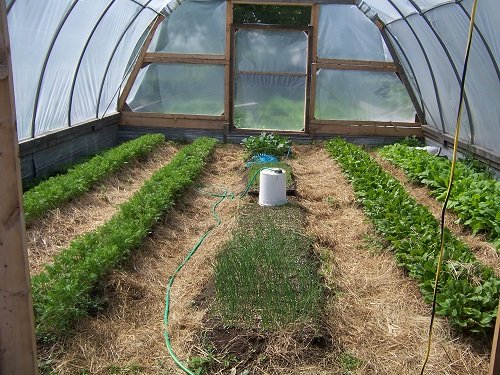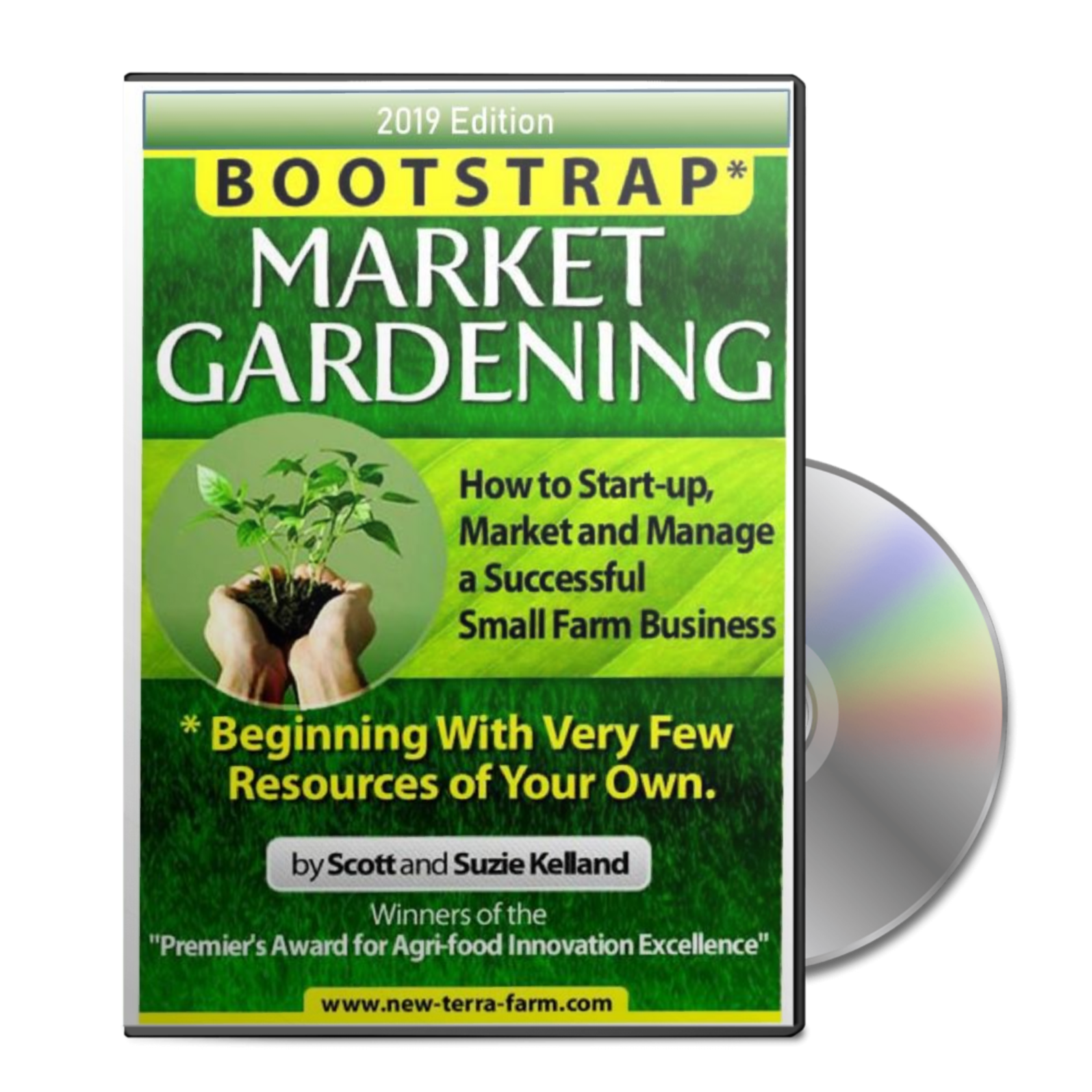What Is The Future Of Farming?
What does the future of farming look like? Will we see an increasingly centralized, industrialized and commodity-driven model win out, or will a local and sustainable network of small farms become the main source of our food in the future? Here's how I think the future is going to shape up, and how small farmers (and wanna-be's) need to prepare.
Smart consumers. I think the single most important factor that will determine the future of farming is the educated consumer. I have many customers that are at least as plugged-in and aware of local and organic and sustainable food issues as I am. More and more people want to know where their food comes from, and how it was grown. They are aware they can't trust Big Agriculture or Big Government to look out for their best interests. And consumers are 'voting with their dollars', by choosing local and organic food when that choice is offered.
Food for health. This trend is also driven by increasing evidence that good, healthy, natural food is the best medicine. The graying, groaning baby boomers (of which I am one) are looking for cures for their aches and ailments. They are aware they can't depend on the increasingly over-taxed (in all senses of the word) 'sick care' system to look after them. Prevention is always better than correction; healthy food is prevention at it's finest.
Resource costs and resource vulnerability. No matter what you believe about the future of Peak Oil, or Peak Water, or Peak Soil, the truth is the cost of maintaining and providing all these things keeps going up. The oil doesn't have to be completely gone for the price to reach levels that put trucking or shipping in our food supply too expensive for the ordinary consumer.
And costs will keep going up for conventional agri-business as well. I've written before that 38% of the petrochemicals used on a conventional farm are for fertilizers. This will only get more expensive. And long supply lines are increasingly vulnerable to disruption from any number of sources.
Labour availability (and the lack thereof). Seems like every year its gets harder to find good farm helpers. Might have something to do with that aging and aching population I mentioned earlier. The average age of farmers is climbing, too. I think this means that some operators will have to look to more mechanization in the future, and most likely change how they grow some crops.
So what does this mean for the future of farming?
What is the future of farming for the
small operator? Number one, any type of 'commodity' production is dead
in the water. You need to get in touch with your end consumer, and focus
on growing quality not quantity.
Look for under-served niches or where you can replace imports.
For example, except for apples, my part of Ontario grows little fruit.
We import hundreds of millions of dollars worth each year. My plans for the future on New Terra Farm include establishing a permaculture orchard
of nut and fruit trees, vines, berries and brambles.
I'm working on this plan with a very knowledgeable farm that has been
doing this for 30 years. The plants we are choosing are well-adapted to
this environment, require minimum care, no spraying of toxic chemicals,
and will produce a variety of crops over my whole season. Note: I am NOT
gonna grow apples! They are pretty much a commodity around here.
Focus on creating a longer productive season. We are also going
to invest heavily in putting more crops under plastic. We plan on
putting up more movable hoop houses this fall. We believe this
will generate a significant part of our farm income in the future, as we
strive to move some of our production to the other side of the
calendar.
 Our main greenhouse, fully planted.
Our main greenhouse, fully planted.Co-opetition not competition. We are also looking to form closer working ties with some local farms and businesses. These folks are not
our competition; our competition is the cheap, crappy food coming here
by long-haul trucker or the proverbial slow boat from somewhere. If
together a bunch of local growers can provide a greater variety of food
to their community, everybody wins.
Use appropriate technology. Any tool that really saves you time
will save you money, too. We are moving away from a lot of 'hand'
operations to more mechanization and the use of tools like multi-row
planters, flame weeders, and tractor-drawn cultivation equipment to keep
up with the work and be more efficient - i.e. profitable. This is also
necessary because of that lack of local farm labour. We recognize this
is a trade-off against a possible depletion of some resources.
To wrap it all up, what all these things have in common is trying
to keep more of the consumer's food dollar, and also keep food dollars
in the community. Every dollar that stays in the community has a
'multiplier' effect as it circulates and is re-spent to buy more
products in that community. The future of farming is local.
Selling more to the same customer is more efficient than trying to get
more customers, especially if the new customers are farther away. Joel Salatin of Polyface Farm is a master of this. The
future of farming in fact looks a lot like the past of a couple
generations ago; local growers providing the majority of food to an
appreciative local community. Groovy!
New for 2020: Get my FREE One-Acre Farm Plan and learn how to pigs, chickens and more, integrated with an organic market garden, to make more money from your small property.
Imagine building a profitable and sustainable mini-farm even on a small piece of land.
Enter your email address and your free report will be sent to you right away.
 Now includes Garden Planner software
Now includes Garden Planner softwareBootstrap Market Gardening, my first Bootstrap Book, shows you step-by-step how to start-up, market and manage an organic market garden based on CSA principles.
New edition includes my Garden Planner spreadsheet. Get Bootstrap Market Gardening only from New Terra Farm.
Or get Bootstrap Market Gardening as part of my Complete Start Farming Pack and save 60%.
- Home Page ›
- 5 Acre Farm ›
- Future of Farming
- Home Page ›
- Bootstrap Market Gardening ›
- Future of Farming
Recent Articles
-
Farm grown reviews of products recommended by New Terra Farm
Dec 04, 25 06:26 AM
Find great farm and garden products in my farm grown reviews -
Best Chicken Coop and Accessories for Small Farms and Homesteads
Nov 30, 25 09:18 AM
Looking for the best chicken coop? Here are the top coops, accessories, nest boxes, and gear to build a safe, productive poultry setup. -
Community Supported Agriculture Marketing Ideas To Sell Out The Season
Nov 05, 25 05:18 AM
Authentic Community Supported Agriculture marketing ideas to grow loyalty, boost sign-ups, and sell out your CSA every year




